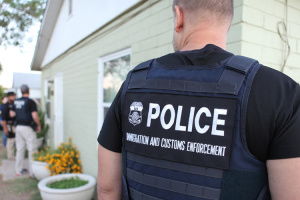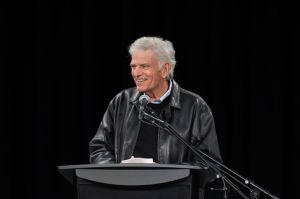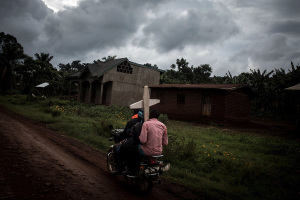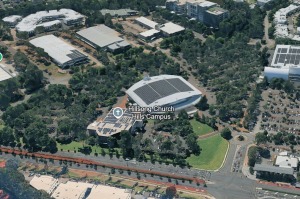Willow Creek Community Church Diversity Leader on Why 'Race Matters'
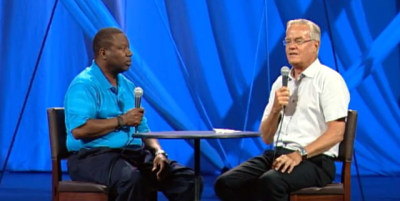
Austin C. Brown, who leads Willow Creek Community Church's diversity efforts, spoke with The Christian Post Wednesday about the Chicago-area megachurch's new "Race Matters" community event, as well as her experiences as a black female leader in "white Evangelical America."
The current "Race Matters" meetings kick off Wednesday night and run through the month of August at Willow Creek's main South Barrington campus, located in predominantly white (65.9 percent), black (24.8 percent) and Hispanic/Latino (24.6) Cook County, according to 2012 census estimates.
The Illinois megachurch, founded in 1975 by Pastor Bill Hybels, hosts more than 20,000 people across six regional campuses every weekend. The nondenominational multigenerational church's new "Race Matters" sessions were organized by Willow Creek's multicultural training team and led by Brown, who declares in her Twitter bio that she is "on a mission to make the racial divide smaller."
Organizers say that "Race Matters" participants will "learn to engage those from different ethnic or cultural backgrounds in conversations that lead to mutual understanding."
Brown, whose efforts at reconciliation go beyond her position at Willow Creek, discusses the "Race Matters" sessions, organized through Willow Creek's Compassion & Justice department, with CP in the edited transcript below:
CP: Share a little bit about yourself and what it is you do at Willow Creek.
Brown: I have worked at Willow Creek for a little less than two years. I work in the Compassion & Justice department, and my role really takes on three forms. My title is Training and Operations Specialist, but in terms of role, I lead church-wide diversity efforts at the church. I also plan a rally (more like a conference) for all of our Compassion & Justice volunteers, and I also work in our new Care Center where I lead the new volunteer training. Those are sort of the three different areas that I take on. This class in particular flows out of my job description for leading church-wide diversity efforts.
CP: Is this the first time Willow Creek is doing the "Race Matters" sessions?
Brown: It is. I created a multicultural training team which consists of about 10 individuals, all full-time employees of Willow who then volunteer their time to be a part of this team. We meet twice a month, and we actually create multiple series on race. So we have a 101 series that's three weeks long and we also have a 201 series that's three weeks long as well. But that team created both series.
CP: There will be three different sessions for "Race Matters" – Identifying Privilege, Naming Stereotypes, and Trying Something New. Please talk briefly about one or two of those, and what participants can expect.
Brown: To start with the last one (Trying Something New)… We talk about a lot of hard stuff, a lot of our personal stories, we really create a framework where stories can be shared. But at the end of it we want people to walk away knowing what they can do, which is always the question when you have these sort of hard conversations – 'What do I do now? What do I do next?' And so often when this race conversation occurs, the primary takeaway that people have is to go find someone who's different. Go find a friend, go meet someone, go find a person… We really end our class by giving people many more options than going to go find a person.
So we talk about going to museums, buying new magazines, we talk about visiting new restaurants, taking new classes – just doing sort of normal everyday things that we don't think twice about and really using those as opportunities to engage about race more often. So what TV shows are you watching? What movies are being played in your house? What books are you reading? Who are the authors of those books? Just giving people multiple ways to enter into the conversation rather than just leaving them having to go find a new friend, which is harder than it was when we were in kindergarten (laughter).
CP: What kind of response did you all receive when you announced that you would be working on this?
Brown: People are really excited. I think that the church has grown a lot in that – there aren't many churches that I know of who would say, 'You know what, we hate diversity.' Nobody says that. Everyone is talking about how to engage it. And it looks different for every church, but the question at this point is definitely 'how?' So when we had an opportunity to invite the congregation into this conversation, they were really excited to participate.
Willow has done some other initiatives in the past. Justice Journey was a really popular form of engaging this conversation for a lot of people, but it's been a number of years since we've done that particular initiative. So for this, (where) we're sort of going to be able to re-engage or engage for the first time, produced a lot of excitement. We've been doing this class since January, and we still get an average of 30 people for every single class.
CP: Pastor Bill Hybels and fellow Chicago megachurch Pastor the Rev. James T. Meeks (of Salem Baptist Church of Chicago) had a discussion on racial reconciliation right after the George Zimmerman trial verdict. What makes the "Race Matters" sessions more necessary or timely?
Brown: There was a lot of emotion that the trial and the verdict in particular stirred up for people. Whether they agree or disagree, just the truth at the end of the day is that people felt a lot of emotion about the verdict. But we aren't always sure what to do with really strong emotions, particularly when they're tied to race. It can just create a sort of explosive situation, much like politics and religion, it's just another one of those things.
I think that Hybels and Meeks being able to talk about it and being able to…not just what they talked about, but how they modeled the conversation. That there were questions and answers and then a response, and thinking and trying to apply it and what could apply and what really can't, like what really is just a totally different experience. How can we still foster our friendship and acknowledge what is also hurtful and painful and really different? So I think they did just a really fabulous job of modeling that. We actually started a "Race Matters" class the week before, so it was really great even for our classroom participants, probably half of which that week came just because of the Trayvon Martin case. … So it was really great for us to be able to have that class, to be able to have a safe dialogue and then for them to see our own pastor model having a safe dialogue the very next weekend.
CP: You shared on Christena Cleveland's website in a guest post titled "On Being Black and Female in White Evangelical America," your experiences being a leader in that particular context. How do your own personal experiences relate to the "Race Matters" sessions in terms of living in "Evangelical America?"
Brown: Ninety-nine percent of the people who attend our class are either at the beginning of engaging this conversation, or have never engaged it before, or have never had a place where they could engage this conversation. Many of us are still living in homogenous communities, and our small groups are still homogenous and the people we sit around are still homogenous. So when I get up to teach this class, I am very aware that there are multiple stories sitting in the room with me. I and my team, we have chosen to open by creating space where everyone's story can live. … No matter how different our backgrounds, every story is valuable and we can put them all in this safe space.















